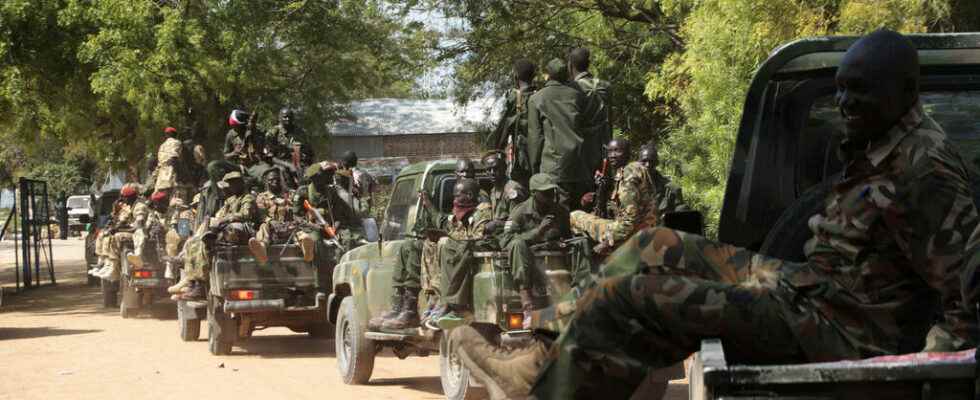On March 22, Vice President Riek Machar, the main opponent of President Salva Kiir, announced the withdrawal of his soldiers from the mechanisms for implementing the security aspects of the 2018 peace agreement which tries to end the civil war. started in 2013. But since the formation of a government of national unity in February 2020, progress has not been up to the challenge. Fighting was reported on March 24 in Upper Nile State and raised fears of a resumption of hostilities between the two main sides that signed the peace.
With our correspondent in Juba, Florence Miettaux
Some described it as ambitious, others never believed that it could be implemented. It is clear today that the south sudan peace process stalled, by the admission of Charles Tai Gituai, the head of the commission overseeing its implementation: ” We have less than a year left before the end of the transitional government. And what concerns us most are the areas of the agreement that have not been implemented. We are concerned as the time remaining is very short with many critical issues that have not been implemented. »
Among the most pressing questions, those of the unification of the armed forces or the reform of the Constitution and electoral laws. But the huge delay in the initial schedule sows doubt.
The need for more effective mediation
The multiplication of incidents, with this withdrawal of the opposition and these fighting reported Thursday in Upper Nile State, do they indicate the imminent failure of the peace process? ” Absolutely not, believes Charles Tai Gituai. Being in charge of monitoring the peace agreement, we were able to engage in dialogue with His Excellency Vice-President Machar. We met with the commissions responsible for security issues. And on Saturday we’re going to have a meeting to deal with these issues. And if you remember the press release that was issued by His Excellency Machar, he was very clear that they are not getting out of the deal. »
The head of the commission overseeing the peace process in South Sudan emphasizes the importance of more effective mediation at regional and international level. And this while elections are scheduled for early 2023.
►Read also: South Sudan: 10 years later, the dashed hopes of independence
